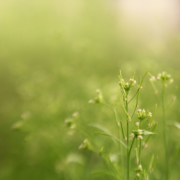Detlef Weigel at Keystone Conference on Plant Immunity
Detlef Weigel will present the work of this team on natural variation in the plant immune system at the Keystone Conference on Plant Immunity in Big Sky, Montana, April 7-12, 2013.
The Plant Immune System at the Nexus of Trade-offs Affecting Fitness and Gene Flow
We are investigating three main questions of evolution: (i) How, and how frequently, do new genetic variants arise? (ii) Why do some variants increase in frequency? (iii) And why are some combinations of variants incompatible with each other? Through research directed at answering the third question we have become interested in the analysis of fitness tradeoffs in immunity. A while ago, we developed Arabidopsis thaliana as a model for hybrid necrosis, a syndrome that is characterized by inappropriate activation of the immune system due to self-recognition (Bomblies et al., PLoS Biol 5:e236 [2007]). We have identified dozens of hybrid necrosis cases in A. thaliana and have cloned the causal loci underlying four genetically distinct interactions. Most encode highly polymorphic immune receptors, and I will report on our efforts to describe species- and genome-wide variation at NB-LRR immune receptor genes.
While most hybrid necrosis systems involve two loci, autoimmunity can also be caused by inter-allelic interactions at a single locus, ACCELERATED CELL DEATH 6 (ACD6). We have previously shown that ACD6 is involved in a major fitness tradeoff between growth and pathogen resistance in inbred strains (Todesco et al., Nature 465:632 [2010]). The ACD6 case is particularly interesting, because necrosis is relatively mild, and naturally occurring hybrids survive in the field. Thus, while divergence of pathogen recognition systems can potentially result in reproductive isolation, hyperactivation of the immune system in hybrids may in other cases promote outcrossing in a species that is otherwise predominantly selfing.
Supported by the Max Planck Society and a Gottfried Wilhelm Leibniz Award of the DFG.



